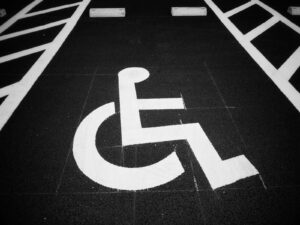Why independence is key to improving the lives of people with learning disabilities
 Stephan Liebrecht (pictured), operational director of adults care and support at Barking and Dagenham Council writes on the importance of developing independence.
Stephan Liebrecht (pictured), operational director of adults care and support at Barking and Dagenham Council writes on the importance of developing independence.
One of the big challenges we face in our disabilities service is providing residents with learning disabilities with the support they need to develop personal independence and have the best life opportunities possible.
Most residents with learning disabilities have the capacity to learn and implement new skills that give them a pathway to a more independent life. We find that personal independence is a key factor when it comes to employment for people with learning disabilities. It is our aim to provide our residents with learning disabilities with better long-term outcomes and give them access to the tools that can help them to achieve this.
There are challenges. Many residents with learning disabilities grow up in very supportive and protective families. This often means that their natural desire for more independence can be met with resistance. In their attempt to protect a vulnerable family member, families may hinder or slow down the development of independence, which has the potential to significantly reduce the confidence that is needed to gain greater independence. In some cases families rely on the benefits that a disabled member of their household receives. A greater degree of independence of the person with learning disability may pose a risk to the family income.
Whatever the motivation, this reluctance can hinder vulnerable people’s ability to live more autonomously and find employment opportunities. This results in chances to achieve better outcomes and lead a fulfilling life being reduced or diminished.
If we want to enhance residents’ self-sufficiency, we need to empower individuals to learn and develop new skills for themselves, rather than solely through their carers. Creating learning opportunities that don’t require a direct interaction with a caregiver is therefore an alternative or addition that has great potential. For people with learning disabilities, a good way to develop new skills can be through performing a sequence of activities themselves as it allows them to do a task rather than just understand it.
At the same time, it can give a sense of achievement which will motivate users to learn more and acquire further skills. Many of us repeatedly watch the barista in our favourite coffee shop make our drink, but we’d struggle to make it ourselves without being shown and accompanied whilst we tried and given an instructional sequence to refer back to.
At London Borough of Barking and Dagenham, one additional way we have looked to support our residents with learning disabilities’ personal development is through the use of digital technology. We have implemented an app-based tool designed to increase the independence of some of our vulnerable adults. The app, created by our digital social care partners AutonoMe, gives users access to personalised, instructional videos on how to do things to improve their independence and prepare for employment.
Digital platforms like this mean that users are able to access information any time, whether they’re alone or with a carer, that instructs them how to perform tasks such as cooking meals and develop life skills they need to be successful in employment. It gives them the independence to learn at their own pace and in their own time, all through an app. Making a sandwich, a cup of tea, or cleaning the bathroom becomes a challenge and a ‘level that can be achieved’ in a lightly gamified fashion.
Using digital technology to enhance personal development as we have may raise concerns that it will limit positive human interaction between carers and vulnerable individuals. I understand those concerns. However, we have no intention to make any abrupt changes to existing provisions and any future change will be based on a thorough re-assessment that takes the wishes of the individual into account. Giving residents with learning disabilities the opportunity to learn new skills and gain more independence will mean that their interactions with other people can improve while the dependence on care and support is reduced. In our Borough, many people with learning disabilities own and love their smartphones, the same as other groups of people. Adding an app to their smartphone which has the potential to improve their skills is picking up this trend, but not one that’s pushing them down a digital pathway they are unwilling to take. It’s their families and carers that may need some encouragement and persuasion.
Digital learning is common for most of us and smartphones and tablets offer easy access to the digital world. As valued members of our communities, residents with learning disabilities should have access to well-developed suitable digital tools. People with disabilities want to be able to live independently, learn, work and be a part of their communities and it’s important that we do everything possible to provide them with the tools to enable and facilitate this. Giving them access to learning opportunities via digital platforms to develop life skills in their own time and space will increase their employability and help them to live more free, independent and fulfilling lives.















